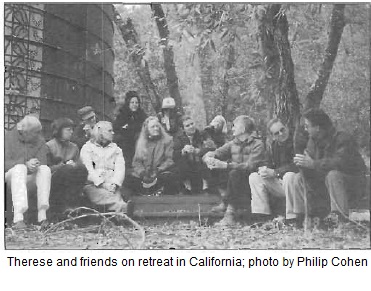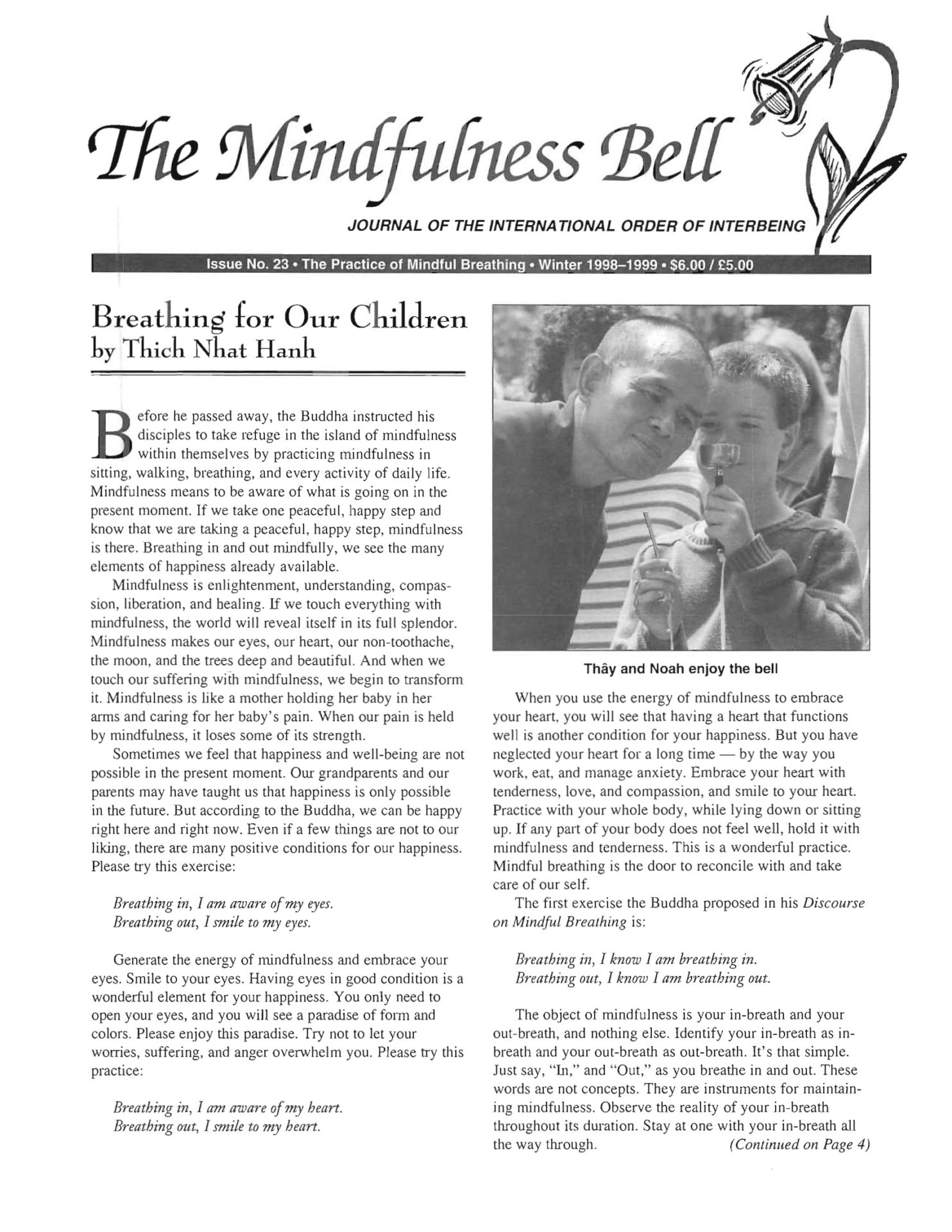By Therese Fitzgerald
After months of zazen practice at San Francisco Zen Center, I asked my teacher Richard Baker-roshi, “Do I really have to count my breath?” “Yes,” he responded with unmistakable solemnity. I had friends who managed to count hundreds of breaths forwards and backwards, and others who described staying home just enjoying their breathing in zazen posture. So I kept putting myself in the “bamboo rod,” as Suzuki-roshi writes in Zen Mind,
By Therese Fitzgerald
After months of zazen practice at San Francisco Zen Center, I asked my teacher Richard Baker-roshi, "Do I really have to count my breath?" "Yes," he responded with unmistakable solemnity. I had friends who managed to count hundreds of breaths forwards and backwards, and others who described staying home just enjoying their breathing in zazen posture. So I kept putting myself in the "bamboo rod," as Suzuki-roshi writes in Zen Mind, Beginner's Mind--trying to learn what for me was a somewhat elusive practice.
Ten years ago, I acknowledged to Thich Nhat Hanh that paying attention to my breathing was mostly an experience of getting in touch with constriction in my abdomen and chest. Thay asked me, "Is there any time you enjoy your breathing?" I thought for a moment and responded, "Yes, when I'm floating in the ocean, in a pond, or even in the bathtub." "Why do you ever get out of the bathtub?" he asked wide-eyed, opening his palm.
Now as I sit up in bed writing while my husband sleeps next to me, I realize I am enjoying my breathing alongside of his breathing. At times-sitting at my office desk looking out the window, lying under a tree, standing at the dish sink-I find myself simply and happily being conscious of my breathing. The concept and practice of stopping, samatha-stopping at the sound of the telephone bell, having a friend ask, "Are you enjoying your breathing?" or stopping for formal meditation-has helped me notice my breathing throughout the day and notice whether it is long or short, relaxed or constricted. Stretching out in the prone posture is the most conducive for my relaxed breathing, and floating in a warm body of water, especially salt water, always gives me the most enjoyable breathing experience.
And then there are times when I have really needed to "take refuge in the island of self' by practicing conscious breathing. This practice was my constant companion, for example, throughout the ordeal of my beloved brother's recovery from a brain injury accident, starting with six weeks in a coma. The breath proved to be my strongest link with the present moment. By returning to my breath when any thoughts of the past or the future could have overwhelmed me, I nurtured my strength to stay with my brother through the coma- which was fairly unnerving, as he was both completely familiar to me and yet far, far away in another universe. Walking meditation in the halls of the neuro-unit sustained me in my contact with less-than sensitive medical staff and anxious visitors. I remember one visitor pleading with me, "Tell me it's gonna be all right." I breathed and spoke from a place of calm conviction, "He's alive. Let's be grateful and be with him as he is right now."

I had to leave midway through the coma, knowing that it would be several weeks before I could see my brother again. My father and I had just visited a facility for severely-damaged brain injury survivors. As I entered my brother's hospital room, I was choked up with sorrow and dread. Tears threatened to disable me from sitting by his side and helping him as he struggled to tear at the feeding tube. I called on the practice of putting breath to song and sang "Breathing In, Breathing Out" with as much spirit as I could gather. My calm was restored, and my sister, who arrived to take care of my brother, was heartened.
Years later, I continued to process the lessons from this experience. While practicing walking meditation at Plum Village one year after the accident, my sadness almost overwhelmed me. I remembered Thay's advice to me just months after the accident when I found it difficult to practice walking meditation on the beautiful streets of Prague, as all I could think of was my brother's inability to walk at the time. Thay had responded, "Walk for your brother." As we started out on the path along the Plum Village sunflower fields, I poured my loving concentration for my brother into each step, while I maintained awareness of my breathing. A song/mantra emerged from that walk which expresses what I continue to learn from the radical awakenings my brother opened up for me: I didn't know how precious life is, until I saw you lying there. I must have forgotten how precious life is, and then I saw you lying there. I couldn't believe how precious life is, as I watched you lying there. And then I practiced taking care, taking care of you lying there. And now I know how precious life is, how very precious life is.
I tum to this mantra when I need to come back to my breathing and deepen my perspective.
It seems so simple: mindful breathing helps us be present for the preciousness of life. The trick is "remembering to remember" the practice that helps us stay present. We help ourselves by carving out time to sit and walk mindfully every day to develop the "habit" of stopping and being with the breath. And yes, counting the breath, gatha practice, guided meditations, or some other means of being fully aware of our breathing, can be the vehicle which facilitates our practice so that it is there for us to call on when we need it.
Dharma teacher Therese Fitzgerald, True Light, practices swimming meditation and mindful breathing in any body of water above freezing.

